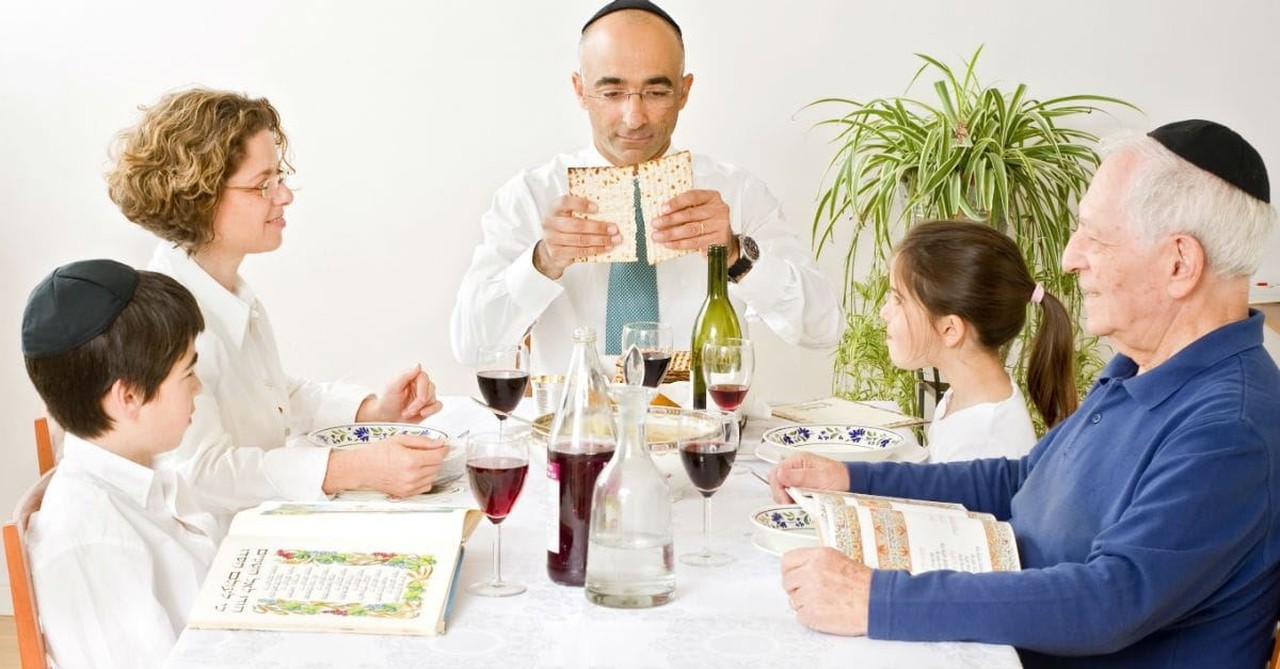
While Thanksgiving Day is special, for the Christian it is only a starting point. Thanksliving is so much grander. As Nancy DeMoss Wolgemuth wrote, “Thanksgiving really should be thanksliving—a way of life—morning, noon and night—continually, forever giving thanks to the Lord.”
It’s a lifestyle, showing gratitude in action, every day and at all times. Thanksliving begins in the mind, filters through our attitudes and plays out in our actions. I believe there are many ways we can build on Thanksgiving Day to cultivate God-honoring Thanksliving.
Photo Credit: Thinkstock
1. The Foundation of Thanksliving

1. The Foundation of Thanksliving
SLIDE 1 OF 10
Jesus is the foundation of a life of thanksgiving. Our gratitude is rooted in Him—including all we have and who we are because of His sacrificial work in us. Our foundation must be in the Lord, seeking Him and His righteousness first.
Lack of gratitude was evidenced in mankind’s initial disobedience and continues today in all who rebel against God. Gratitude is a response to the great mercy we’ve been shown.
People may or may not express gratitude as a result of common grace. Only one of the 10 lepers Jesus healed returned to thank Him. But “A thankful heart,” John MacArthur says, “is one of the primary identifying characteristics of a believer. … No matter how choppy the seas become, a believer’s heart is buoyed by constant praise and gratefulness to the Lord.
Thankfulness is, in fact, a command for the Christ-follower, as noted by Nancy DeMoss Wolgemuth. “God has commanded it—for our good and for His glory. God’s command to be thankful is not the threatening demand of a tyrant. Rather, it is the invitation of a lifetime—the opportunity to draw near to Him at any moment of the day.” And that is Thanksliving.
To help you in thanking God, we created a 30 Days of Gratitude Prayer Guide HERE. Download and print this guide to keep with you as a reminder of God's love and promises.
Photo credit: ©Thinkstock/artphotoclub
2. The Framework for Thanksliving

2. The Framework for Thanksliving
SLIDE 2 OF 10
Our habit of gratitude forms the framework for thanksliving. Authentic gratitude builds on the foundation of Christ. We receive all things from His hand.
We must learn from the Israelites whose gratitude was wavering and conditional—thankful when God delivered them, but murmuring when He didn’t. Grace rather teaches us to actively pursue and practice gratitude. We count our past and present blessings and are receptive to what God is doing in and through our lives in the present.
We are grateful not only for what we have and can do, but also for so many things that did not touch our lives in a negative way—burdens, hurts and troubles. And with maturity, we will even learn to be grateful for the trials, knowing Romans 8:28 is true: “… all things work together for good….”
“No matter what our circumstances,” Dr. David Jeremiah said, “we can find a reason to be thankful.” J. I. Packer says much the same: “The habit of celebrating the greatness and graciousness of God yields an endless flow of thankfulness, joy and zeal.”
Gratitude comes hard in our entitlement culture; we often have an ungrateful mindset. But we must teach our souls the truth, and choose thanksliving. “Gratitude is a decision of the will,” Pastor Chuck Swindoll said. “Deciding to be thankful is no easy task. It takes work.”
We must learn to desire the Giver more than His gifts, and thank Him for His steadfast love and goodness. He is a “good, good Father,” and our daily habit should be thanking Him for the small things, the simple pleasures.
Photo credit: ©Thinkstock
3. The Focus of Thanksliving

3. The Focus of Thanksliving
SLIDE 3 OF 10
In a culture of “more,” there’s a lot of whining and grumbling; we’re not happy with our many blessings, and focus instead of our losses and lack. We dwell on what is difficult or inconvenient and take things for granted.
But like Paul, we can learn to be content, and that is the focus of Thanksliving. “It is not how much we have,” Charles Spurgeon said, “but how much we enjoy that makes happiness.”
Spurgeon also reminds us, “God is too good to be unkind and He is too wise to be mistaken. And when we cannot trace His hand, we must trust His heart.”
Most Christ-followers need an attitude check. “God has promised to supply all our needs,” Elizabeth Elliot said. “What we don’t have now, we don’t need now.”
One of the most valuable exercises in my life was to go through all my closets and shelves and examine all my “stuff.” It occurred to me that millions of people desperately craved even a little of what I have. People want food, a job, education, medical care, peace, and freedom—and I have all of these. How can I be discontent? How can I not express gratitude?
Photo credit: Pexels
4. The Faithfulness in Thanksliving

4. The Faithfulness in Thanksliving
SLIDE 4 OF 10
Though the Israelites were encouraged to “remember,” they had spiritual amnesia. They often forgot what God did for them. Our God is faithful, and scriptures encourage us to remember how He is sovereignly working on our behalf—to recount and ponder them.
“God is in control,” Bible teacher Kay Arthur said, “and therefore in everything I can give thanks—not because of the situation, but because of the One who directs and rules over it.”
Thanksliving purposefully seeks out what God is doing in every situation and treasures and celebrates it. We train our minds to become more sensitive to the blessings of God so we can sniff out the tiniest things our faithful God has done for us. Pastor Kevin A. Thompson calls this being “bloodhounds for good.”
Though many scoff at the naiveté of Pollyanna and her “glad game,” I learned from my youth to follow her example and determine to search out the many ways God has been faithful. One year I created a “Blessing Bucket” and each day wrote down my reasons for gratitude, and then read them all on the next Thanksgiving. Reasons for God’s faithfulness overflowed in my heart!
We also need to tell others about God’s faithfulness. Just as Israel piled mounds of stones as memorials to God’s care, we can pass on meaningful stories of blessings to our children.
Photo credit: ©Thinkstock/vadimguzhva
5. The Feeding of Thanksliving

5. The Feeding of Thanksliving
SLIDE 5 OF 10
Thanksliving should flow out of us to touch others. Just as grumbling is contagious, so is gratitude.
We “feed” or nourish others by verbalizing our appreciation and nourish their souls with positive statements. Scripture says it this way, “Therefore encourage one another and build one another up….”
We can nourish our spouse, children, neighbors, church family and others by acknowledging them, admiring them and treasuring them. We can pray and thank God for them in their presence. We might share words of gratitude about others on Facebook, place an encouraging note in our child’s lunchbox, or write a special note for our spouse on the bathroom mirror.
“It is only with gratitude that life becomes rich,” Dietrich Bonhoeffer said. Tim Keller takes that a step further: “It is one thing to be grateful. It’s another to give thanks. Gratitude is what you feel. Thanksgiving is what you do.”
Photo credit: ©Thinkstock
6. The Feasting of Thanksliving

6. The Feasting of Thanksliving
SLIDE 6 OF 10
Part of the focus of modern-day Thanksgiving Day is the feasting, representing gratitude for the abundance in our lives. Christians find their abundance in Christ because of the Gospel message of redemption, and recognition of this abundance leads to thanksliving.
A bit of history. The Lord gave Israel pictures of how they should live with gratitude for God’s provision all year long. Seven Old Testament feasts or festivals were closely aligned to Israel’s harvest seasons, reminding them of God’s ongoing care. These Jewish feasts foreshadowed the coming Messiah and His ministry.
The four springtime feasts point back to what Christ accomplished during His first coming, and the three fall feast point toward His second coming.
Jesus turned one of these feasts, the Passover celebration, into a special memorial of remembrance and gratitude. In many churches today, the regular offering of the celebration of Christian Communion—the Lord’s Supper—likewise encourages us to gratefully remember what Christ accomplished in redeeming us on the cross and conquering death and sin in the resurrection, and we look forward to His imminent return.
It is an integral ingredient of our worship, to proclaim and celebrate the Gospel message until He comes. When Jesus said, “Do this in remembrance of me,” it should invoke deep gratitude for His grace and mercy.
Photo credit: ©Thinkstock/Pushlama
7. The 'Family' and Thanksliving

7. The 'Family' and Thanksliving
SLIDE 7 OF 10
Psalm 111:1 says, “Praise the LORD! I will give thanks to the LORD with my whole heart, in the company of the upright, in the congregation.”
Gratitude is at the heart of Christian community. It is always better to give thanks in the presence of others—multiplying the joy. We enjoy what we have more by sharing it with others, and Christians are to cultivate gratitude together with the family of God.
It is God’s will that His people develop an attitude of gratitude, and this is more easily developed in an atmosphere of mutual love and accountability—lifting up, helping and serving our brothers and sisters as they practice thanksliving in the difficult seasons of life.
Photo credit: ©Thinkstock
8. The Formation of Thanksliving

8. The Formation of Thanksliving
SLIDE 8 OF 10
Sometimes Thanksliving is more easily caught than taught.
The meaningful traditions of Thanksgiving Day are important to spark a lifestyle of gratitude and can bind families together. But Christ-followers are wise to think beyond these traditions and plan for a legacy of gratitude.
The formation of Thanksliving in our families begins with daily modeling of gratitude and appreciation for people, including saying “please” and “thank you” and practicing the common courtesies of life. We train our children through daily circumstances, modeling right attitudes. We suggest opportunities to act on gratitude through thank you notes or other expressions of thanks.
But we also teach our families to come to God with thankful hearts and speak of His works with joy. We explain why thanking God is important and we cast the vision for praise-filled worship.
This may be hard for those who have never experienced a legacy of gratitude themselves. In that case, formation of a grateful heart begins by searching the scriptures for the truth about gratitude and intentionally choosing Thanksliving.
Photo credit: ©Thinkstock/Monkeybusinessimages
9. The Freedom in Thanksliving

9. The Freedom in Thanksliving
SLIDE 9 OF 10
The word "gratitude" comes from the same root word as "freedom" (gratis = free). Gratitude is the heart cry of a person who has been made free in Christ—the One who so freely gave.
God freely gives His children life and breath, wisdom, peace, grace, their heart desires when they delight in Him, and so many good gifts.
Gratitude recognizes that everything we are and have is from God. In Him, “we live and move and have our being.”
The beautiful truth is—while without Christ we can do nothing, in Him we are free and can do “all things,” because God freely gives His children all things to enjoy. And we, in turn, can freely share with others.
Photo credit: ©Thinkstock
10. The Fruit of Thanksliving

10. The Fruit of Thanksliving
SLIDE 10 OF 10
Dr. George Bannister said, “An attitude of thanksgiving bears positive, transformational fruit in the believer’s life.” We see this fruit in the great psalm of worship, Psalm 100, a psalm for giving thanks. It’s a psalm for Thanksliving!
In verses 1-2, we see that God transforms our emotional condition when we are thankful. We become creatures of joy and gladness.
In verse 3, our focus changes. We find a greater purpose than focusing and serving ourselves. Life is all about God, not us!
In verses 4-5, we find our attitudes about circumstances transformed. We acknowledge that “the LORD is good,” and He is loving and faithful to us and “all generations.” This goes back to learning contentment.
Another wonderful fruit of Thanksliving is our ability to witness to others. The early church attracted unbelievers because their lifestyle of Thanksliving—“… glad and generous hearts, praising God…”—demonstrated the power of God to transform lives; and this powerfully advanced the Gospel message.
Dawn Wilson and her husband Bob live in Southern California. They have two married sons and three granddaughters. Dawn assists author and radio host Nancy DeMoss Wolgemuth with research and works with various departments at Revive Our Hearts. She is the founder and director of Heart Choices Today, publishes Upgrade with Dawn, and writes for Crosswalk.com. Dawn also travels with her husband in ministry with Pacesetter Global Outreach.
Photo credit: ©Thinkstock
Originally published November 24, 2023.







